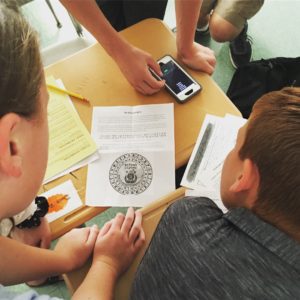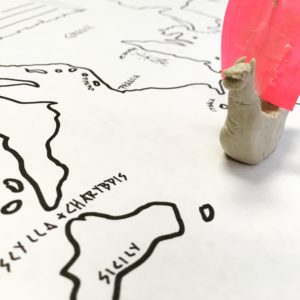In This Post
- If you create a space where your students feel confident and safe to experiment and challenge themselves, they will be your biggest cheerleaders as you begin to do the same!
- Keeping parents in the loop can make a lesson powerful in the classroom and even at home.
- Use interdisciplinary strategies to build more experimentation in the classroom. Collaboration is Key!
Every member of the Teach Better community is fueled with passion for their profession, and is willing to try progressive tactics to provide the best possible education to every student. That is why you are reading this blog post! However, it can be scary experimenting with new strategies and practices. What if this new lesson format just confuses the students? What if a parent complains about this topic? What if my administrator/evaluator doesn’t like the flexible seating?
Here’s how you can set the stage in your classroom so you can experiment fearlessly and effectively!
1. Engage Your Students
Set up a classroom culture that models effective and positive risk-taking from day 1. This will encourage a growth mindset. If you create a space where your students feel confident and safe to experiment and challenge themselves, they will be your biggest cheerleaders as you begin to do the same!
Make sure that your process is transparent, so they can learn from you. Walk them through the steps you are about to take, and explain why you are going to start changing up your classroom. Articulating your why will ensure that the experiment you are about to undertake has meaning and intention! When our students are engaged in the challenge, it makes a larger impact on our content and culture.
Articulating your why will ensure that the experiment you are about to undertake has meaning and intention! #TeachBetter Share on X2. Inform Your Parents & Stakeholders
 What are your students talking about around the dinner table? Hopefully, your exciting and challenging course! But if the parents don’t understand what your students are doing or why they are doing it, they will not be able to fully support their student as they move through your course.
What are your students talking about around the dinner table? Hopefully, your exciting and challenging course! But if the parents don’t understand what your students are doing or why they are doing it, they will not be able to fully support their student as they move through your course.
In the beginning of your experiment, send a note home explaining your thought process to parents, and back it up with some of the research you have been doing to prepare. For example, I recently gamified my Odyssey unit, and in my Parent Newsletter I explained a bit about what the gamification process looks like, and what my goals were for student engagement and mastery of the text.
When my students went home, their parents fully understood what we were doing in my classroom as well as my long-term goals for their success in this unit, and were able to support and encourage them at home.
[scroll down to keep reading]
3. Collaborate with your Colleagues
The best way to ensure support in school is to collaborate with the awesome educators already in your building. This will not only help get your colleagues and administrators on board with your innovative new ideas, but will also make sure they are as targeted and effective as possible for your unique student community.
Seek out your technology director for Quizlet Live advice! Meet with the art teachers to plan an interdisciplinary activity! Invite your admin into your classroom for an informal check-in, so they can witness your transparent process and progressive transformations! Conversation is key, and the more open and authentic you are about your experimentation, the more high-quality and positive support your school community will be able to provide you.
Be fearless in your creativity and passion for your students! I hope these tips help you set the stage for some awesome changes in your classroom. And of course, let us here in the Teach Better community know how you are doing!
About Erin Hall
Erin Hall is an English Teacher at Chariho Regional High School and the Founder & CEO of the Young Educators Society of Rhode Island. YESRI is an organization where educational professionals with less than 10 years of experience can connect, collaborate, and learn from each other.
Erin’s Classroom Website: www.mshallclassroom.com.
For more on YESRI, visit: www.yesri.org
Or visit them on Facebook at facebook.com/yesriorg.



